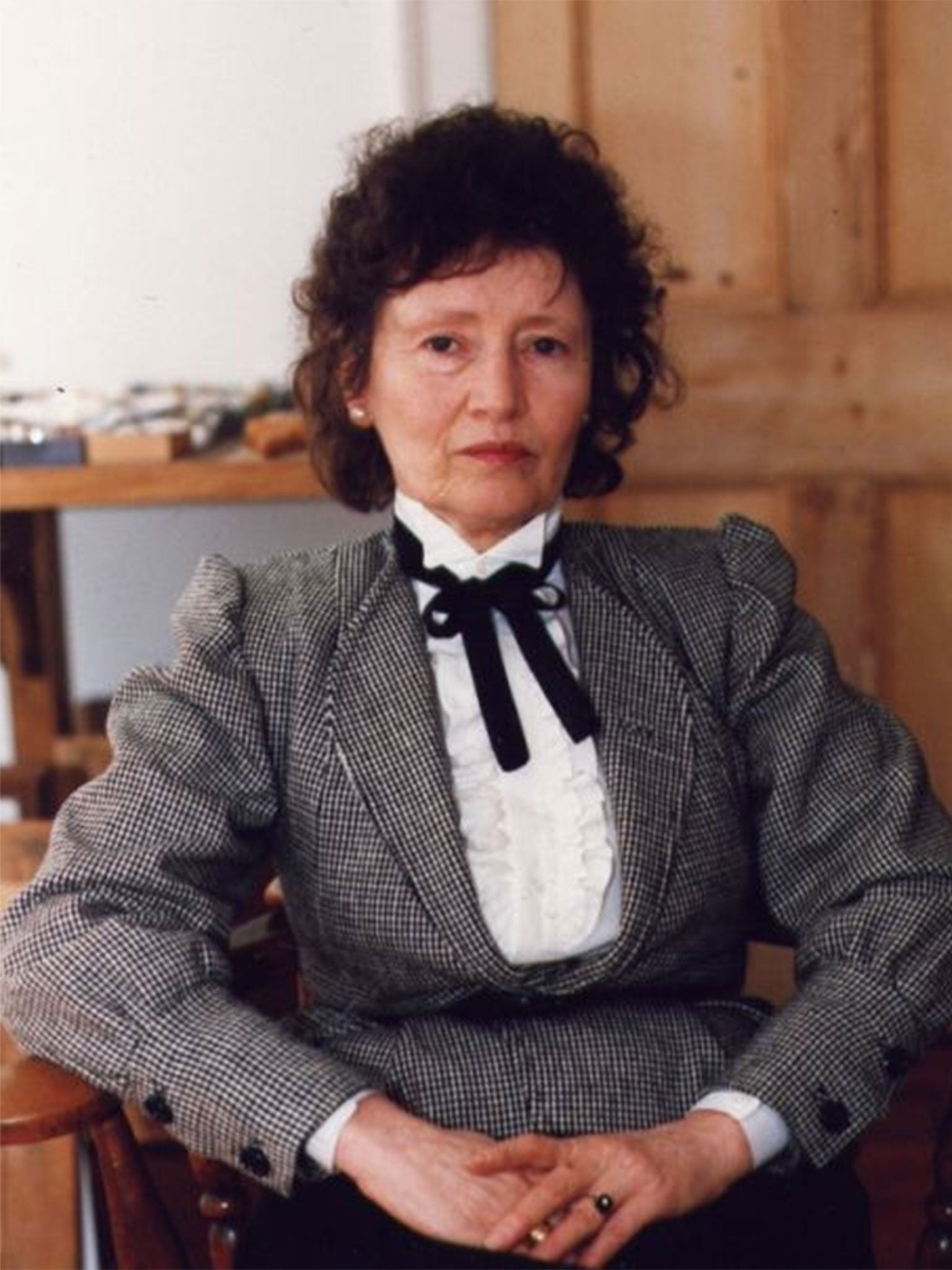Naomi May: Scottish novelist and writer who worked tirelessly for PEN’s ‘Writers in Prison’ Committee
Her novels were daring and convincing in their emotional spectrum

Naomi May, who has died at her home in Richmond, Surrey, was an accomplished novelist and short-story writer, a subtle watercolourist, and an indefatigable member of the PEN “Writers in Prison” Committee.
She was born Naomi Keanie in Glasgow in 1934, and grew up in nearby Johnstone, an industrial town on the southern edge of the Clyde Valley. Her father, Norman Keanie, had inherited a construction company, and Naomi and her younger brother, Geoffrey, in many ways enjoyed an idyllic childhood in a handsome detached house called Miramar.
Then the war came, and as soon as they were old enough, the Keanie children were sent to a small boarding school in the Trossachs. Later, for Naomi, there were schools in England, one of which she “hated with a passion both enduring and defiant”. On the way home to Scotland after her last term there, in a gesture reminiscent of Becky Sharp at the start of Vanity Fair, she opened a carriage window as the train crossed a bridge over a river, flung out her abhorred school hat and gleefully watched it being carried out to sea. (She recalls the incident in her fascinating memoir of her early years, Everyone Wore Hats, 2013.)
She then attended Millfield in Somerset, where she became something of a protégée of Robert Bolt, who – before his success as a playwright – taught English and history at the school. A friendship developed between pupil and teacher, which endured until Bolt’s death in 1995.
Naomi went on to study art at the Slade School in London, winning the annual “History of Art” prize in her final term, and gaining glowing plaudits from Sir William Coldstream. She continued to paint throughout her life, exhibiting her work at the Grafton Gallery in London, among other places; but this was not her main preoccupation. Even as a child in Scotland, the future novelist was observing, and absorbing, the life around her, the stresses and complexities of adult relationships, the tensions underlying even the most unruffled surfaces.
In 1964, following a brief and unsatisfactory marriage to a fellow-student at the Slade, Naomi Keanie met and married a Northern Irish accountant, Nigel May, and the couple set up house on the outskirts of Belfast.
Her first novel, At Home, was published by Calder and Boyars (later John Calder Publications) in 1969 – by which time Naomi May was the mother of two children (a third was born a couple of years later). At Home, which one reviewer described as “haunting and disturbing”, was followed by The Adventurer (1971), set in Scotland and, like its predecessor, a contemporary story of domestic vicissitudes, astutely and satirically framed.
In the meantime, violence and disruption had overtaken the streets of Northern Ireland, and the novel Troubles (1976) was among the earliest to tackle head-on the origins, and the consequences, of the bloody sectarian conflict. It includes a searing account of a bomb exploding in the centre of Belfast.) It is on the side of enlightenment about political matters, but shows the inadequacy of liberal opinion in the face of obduracy on one side or the other. The poet and academic Robert Crawford, writing about Naomi May in his study of Scottish authors, calls her fiction “daring and convincing in its emotional spectrum and its thematic range”.
By 1976, when Troubles was published, the May family had moved to London, where Naomi continued to publish articles and short stories. Gifted with enormous energy, she took up, at the same time, the causes of various neglected figures in the art world, including, most conspicuously, the German expressionist painter Felix Mueller, on behalf of whom she arranged successful exhibitions at the Leicester Art Gallery and the Courtauld Institute.
Having been badly affected, like many people, by the terrible images of the concentration camps which began to appear in the media after the war, Naomi became a strong opponent of cruelty and injustice wherever these occurred in the world, and found an outlet for her humanitarian instincts in the PEN “Writers in Prison” Committee. She worked tirelessly as a “minder” and correspondent with prisoners in China, Cuba, Saudi Arabia and Sierra Leone. In 2012, due to the efforts of Naomi and her husband, an English translation of Jiang Qisheng’s Memoirs of a Chinese Political Dissident was published: this was predominant among the achievements in which she took a justified pride.
But the things most striking about Naomi, as her many friends will testify, were her wit and originality, her mischievous streak, her intense interest in the world and its goings-on, her capacity for empathy, her kindness, practicality, generosity and endless good humour. Everyone who knew her will remember the superb garden parties held each summer at the May family home, when the guests might include politicians, novelists, journalists, television personalities and Oxford dons, and an extraordinary spirit of buoyancy and blitheness prevailed.
A voracious reader throughout her life, Naomi in her last illness returned to the novels of Jane Austen, which continued to sustain and delight her. Calm and uncomplaining to the end, she died as she had lived – with grace, affection, matter-of-factness and self-possession.
Naomi Keanie, novelist; born Scotland 27 March 1934; married Michael Kellaway 1954 (marriage dissolved); Nigel May 1964 (two sons, one daughter); died London 14 July 2014.
Join our commenting forum
Join thought-provoking conversations, follow other Independent readers and see their replies
Comments